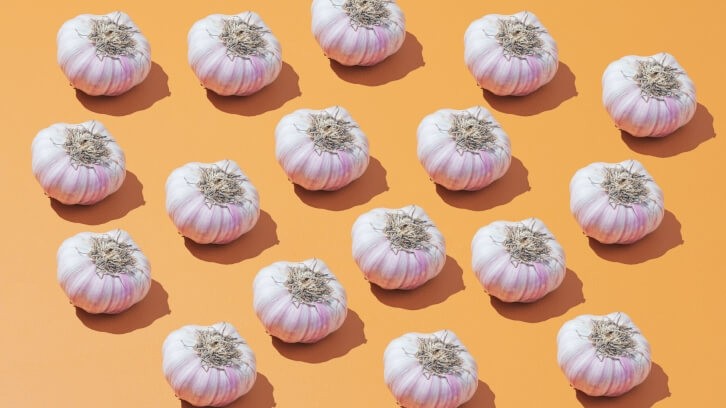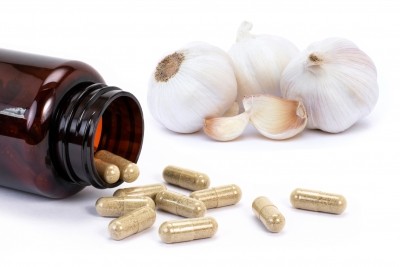Aged garlic extract shown to lower systolic blood pressure in small study

The small study out of Brazil evaluated the tolerance, intake and effect of aged garlic extract (Allium sativum) on stool consistency, blood pressure and other cardiovascular markers, including body composition, glycemic and lipid parameters in individuals diagnosed with treated but uncontrolled systemic arterial hypertension, one of the main risk factors for cardiovascular diseases.
“It is essential to investigate the biological role of garlic preparations in the gut ecosystem of hypertensive patients, since the gut microbiota has been associated with the control of blood pressure levels,” the researchers wrote. “Thus, more clinical trial studies should be conducted to investigate the effect of aged garlic extract on risk factors for hypertension, such as the relationship of the microbiota to the central nervous system, bone marrow and dietary factors.”
Significant decreases in blood pressure
The 12-week trial examined participants between 19 to 59 years old with uncontrolled blood pressure (systolic BP ≥ 140 mmHg and/or diastolic BP ≥ 90 mmHg). Twenty-eight individuals were enrolled, 14 from the garlic group and 14 from the placebo group.
The experimental group received tablets of aged garlic extract and were instructed to take a dose equivalent to 1.5 grams of fresh garlic. The organic garlic was stored in 15-20% ethanol solution for up to 20 months at room temperature to help produce the tablets.
After the participants received the first package of tablets, they were periodically evaluated every four weeks. The researchers assessed the participants blood pressure levels, anthropometry, dietary intake and tablet tolerability. During the last week of evaluation, the scientists conducted a new blood collection and stool consistency analysis.
Additionally, clinical evaluation consisted of collecting personal data, physical examination, history of current disease, clinical treatment, history of past disease, family history of premature cardiovascular disease in first-degree relatives according to gender and age. Body measurements performed in the experimental study include body weight, height and waist circumference. All measurements were taken in triplicate and the researchers calculated body mass index (BMI). Dietary information was collected through the 24-hour food recall.
The participants were instructed to fast for eight hours for the collection of biological material such as plasma.
“Only the systolic blood pressure of the aged garlic extract group showed significant decreases at week four and twelve of intervention,” the researchers wrote. “Clinical improvements in stool consistency, glycemic parameters and low-density lipoprotein in hypertensive patients with treated but uncontrolled blood pressure [were documented]. In addition, we found a correlation between the variation in blood pressure levels and the dietary intake of vitamins B9 and B12 in the group treated with aged garlic extract.”
The role of the microbiota
The researchers noted that recent studies highlight that the hypotensive effect of aged garlic extract is comparable to first-line drugs, which have been associated with adverse effects, such as syncope, cancer, renal failure, hypokalemia and hyponatremia.
Moreover, the scientists raised further questions about the interaction of the gut microbiota with aged garlic extract.
“Considering this integration and its importance in blood pressure regulation, it is indispensable to evaluate the following question: Is the antihypertensive effect of garlic produced after improving the immune system and gut microbiota in hypertensives with uncontrolled BP?” they asked. “Although not accepted, the current evidence does not allow the discard of this hypothesis, because the anti-inflammatory characteristic of garlic may contribute to the reduction of pro-inflammatory cells that increase permeability and compromise the inflammatory status of the intestine and central nervous system.”
Source: Journal of Functional Foods
"Effect of aged garlic extract on blood pressure and other cardiovascular markers in hypertensive patients and its relationship with dietary intake"
doi: doi.org/10.1016/j.jff.2023.105931
authors: Tiago M.S. Vila-Nova et al.













